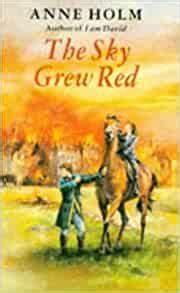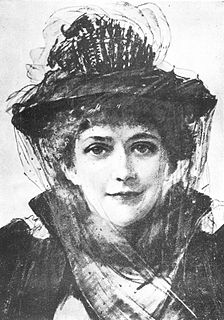A Quote by Oscar Wilde
One's days were too brief to take the burden of another's errors on one's shoulders. Each man lived his own life and paid his own price for living it.
Related Quotes
Your actions are your own. Your choices are your own. Each of us carries a burden of guilt for decisions made or not made. You can let that rule your whole life or you can put it behind you and move on. Only a madman lets jealousy determine the course of his existence. Only a weak man blames others for his own errors.
Does the open wound in another's breast soften the pain of the gaping wound in our own? Or does the blood which is welling from another man's side staunch that which is pouring from our own? Does the general anguish of our fellow creatures lessen our own private and particular anguish? No, no, each suffers on his own account, each struggles with his own grief, each sheds his own tears.
His face set in grim determination, Richard slogged ahead, his fingers reaching up to touch the tooth under his shirt. Loneliness, deeper than he had never known, sagged his shoulders. All his friends were lost to him. He knew now that his life was not his own. It belonged to his duty, to his task. He was the Seeker. Nothing more. Nothing less. Not his own man, but a pawn to be used by others. A tool, same as his sword, to help others, that they might have the life he had only glimpsed for a twinkling. He was no different from the dark things in the boundary. A bringer of death.
Each individual composes the music of his own life. If he injures another, he brings disharmony. When his sphere is disturbed, he is disturbed himself, and there is a discord in the melody of his life. If he can quicken the feeling of another to joy or to gratitude, by that much he adds to his own life; he becomes himself by that much more alive. Whether conscious of it or not, his thought is affected for the better by the joy or gratitude of another, and his power and vitality increase thereby, and the music of his life grows more in harmony.
First of all, although men have a common destiny, each individual also has to work out his own personal salvation for himself in fear and trembling. We can help one another to find the meaning of life no doubt. But in the last analysis, the individual person is responsible for living his own life and for "finding himself." If he persists in shifting his responsibility to somebody else, he fails to find out the meaning of his own existence. You cannot tell me who I am and I cannot tell you who you are. If you do not know your own identity, who is going to identify you?
Every man should write a brief history of his life: his parentage, his birth, his religion, when he was baptized and by whom, when ordained, what to, and by whom-give a brief sketch of all his missions and of all his official acts and the dealings of God with him. Then if he were to die and the historians wished to publish his history, they would have something to go by.
Life consists of sadness too. And sadness is also beautiful; it has its own depth, its own delicacy, its own deliciousness, its own taste. A man is poorer if he has not known sadness; he is impoverished, very much impoverished. His laughter will be shallow, his laughter will not have depth, because depth comes only through sadness. A man who knows sadness, if he laughs, his laughter will have depth. His laughter will have something of his sadness too, his laughter will be more colorful.
A priest is a man vowed, trained, and consecrated, a man belonging to a special corps, and necessarily with an intense esprit de corps. He has given up his life to his temple and his god. This is a very excellent thing for the internal vigour of his own priesthood, his own temple. He lives and dies for the honour of his particular god. But in the next town or village is another temple with another god. It is his constant preoccupation to keep his people from that god. Religious cults and priesthoods are sectarian by nature; they will convert, they will overcome, but they will never coalesce.
With only one life to live we can't afford to live it only for itself. Somehow we must each for himself, find the way in which we can make our individual lives fit into the pattern of all the lives which surround it. We must establish our own relationships to the whole. And each must do it in his own way, using his own talents, relying on his own integrity and strength, climbing his own road to his own summit.
The believer is sensible of his infirmities, for it is supposed that he is wrestling under them. He sees, he feels, that he is not man enough for his work; that his own hands are not sufficient for him, nor his own back for his burden; this is what drives him out of himself to the grace that is in Christ Jesus. And thus he lies open to the help of the Spirit, while proud nature in unbelievers is left helpless.






































